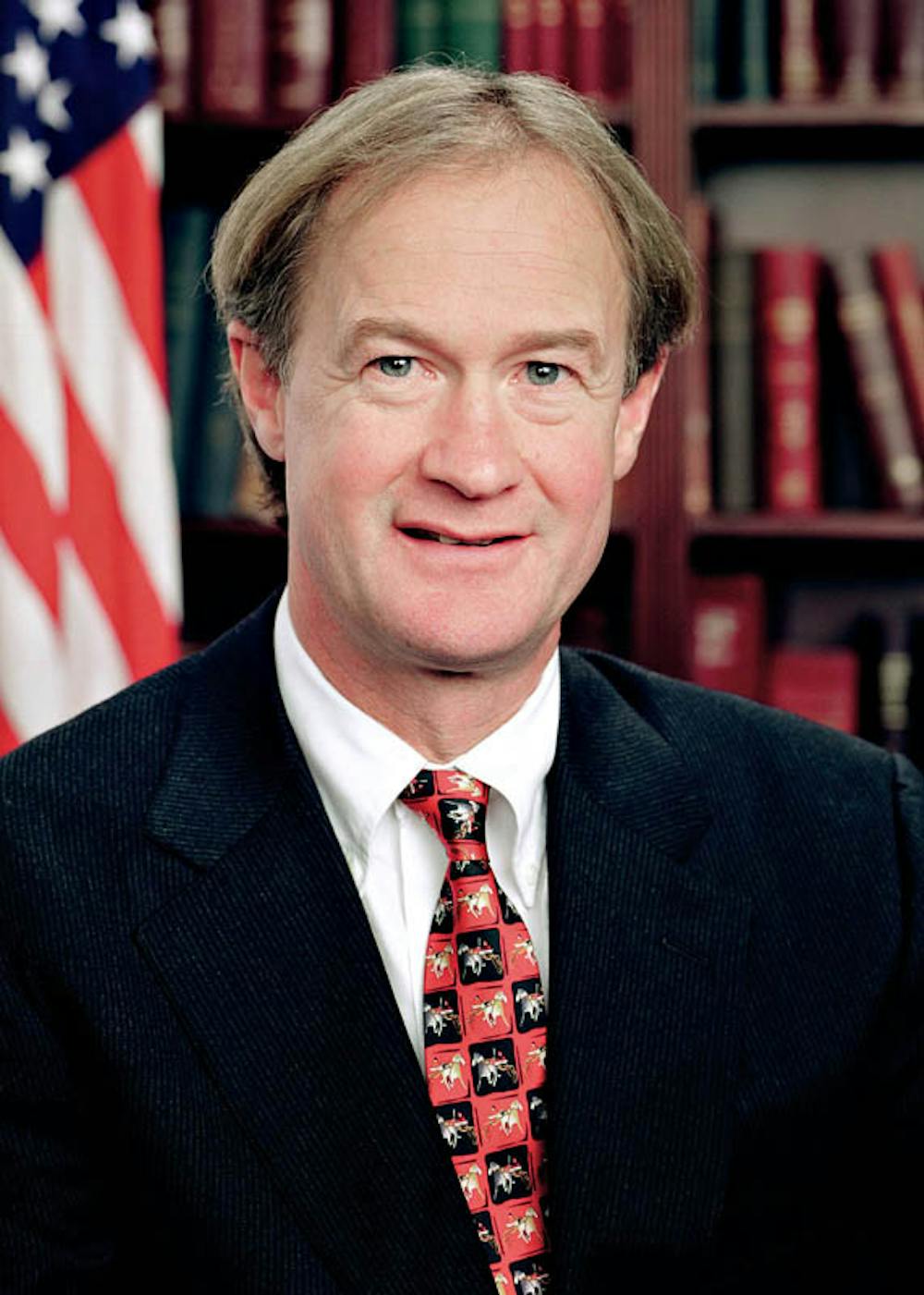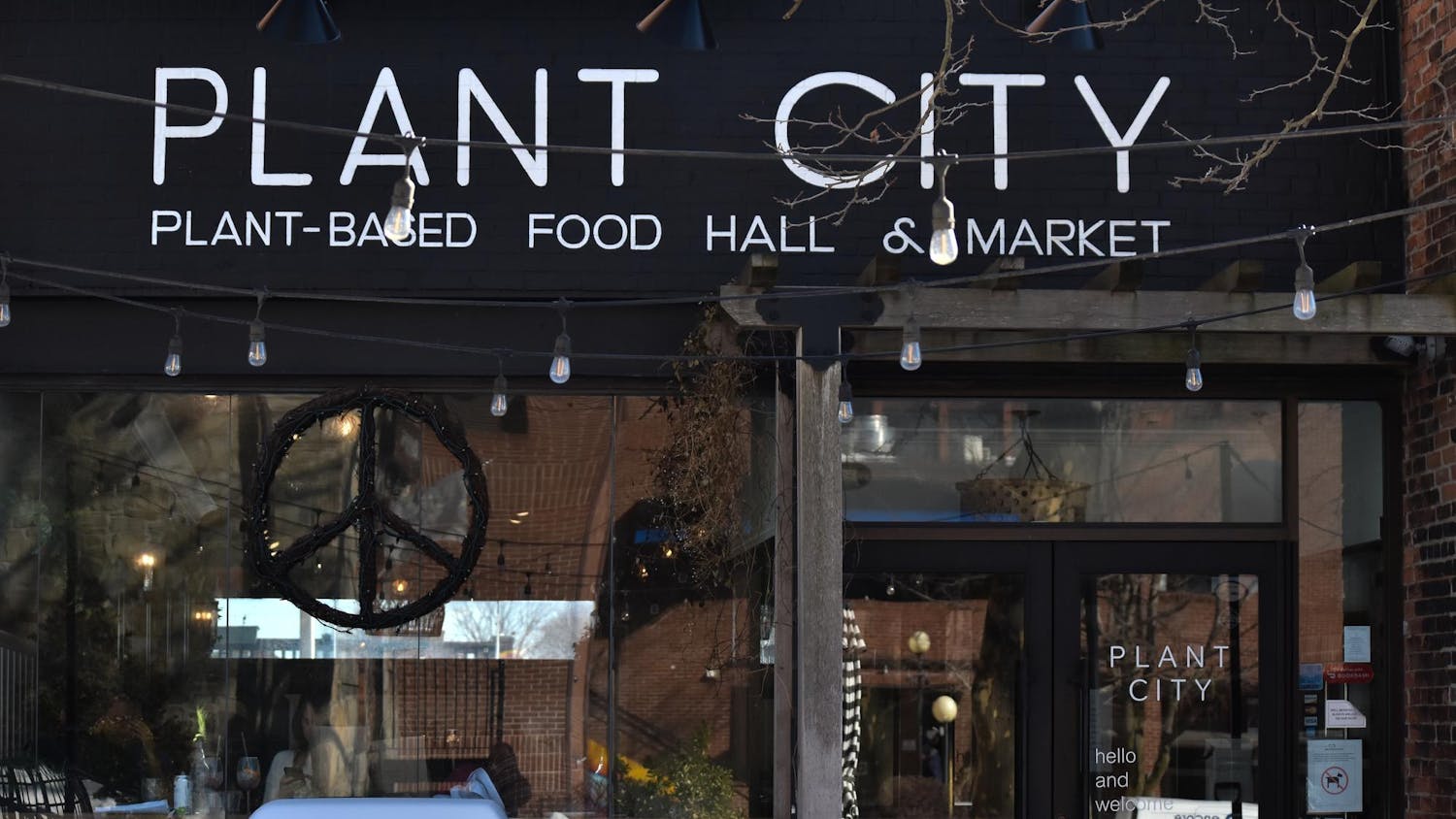Gov. Lincoln Chafee ’75 P’14 P’17 announced May 29 that he will join the Democratic Party, setting the stage for what analysts anticipate will be a heated three-way Democratic primary during the 2014 gubernatorial election.
Chafee was the nation’s only independent governor during his first two and a half years in office.
Chafee began his political career in 1986 when he was elected as a Republican to the Warwick, R.I. City Council. In 1992 he became the mayor of Warwick, serving until 1999 when he was appointed to the U.S. Senate to serve the remainder of his father’s term after he passed away in office. Though Chafee remained a member of the GOP through his 2006 loss to Sen. Sheldon Whitehouse, D-R.I., he frequently clashed with his Republican colleagues and was the only Republican senator to vote against the Iraq War. He was also the first and only Republican senator to favor legalizing same-sex marriage, until earlier this year when Sen. Rob Portman, R-OH, announced his support. After losing to Whitehouse, Chafee switched his party affiliation to independent. In 2010 he won a four-way race for governor in 2010, defeating Republican John Robitaille, Democrat Frank Caprio and the Moderate Party candidate Ken Block.
Chafee said he had been considering the switch for “months, if not years,” WPRI reported at the time.
“I’ve been looking for a political home,” Chafee told reporters during a news conference announcing the switch in the Warwick City Council chambers.
Chafee was the only non-Democrat to speak at the 2012 Democratic National Convention.
“The Democratic Party has always been about inclusion, so I am certainly pleased that Gov. Chafee has joined our ranks,” said Speaker of the House Gordon Fox, D-Providence, in a statement May 29.
President Obama, whom Chafee endorsed in 2008 and 2012, also welcomed Chafee to the party in an official statement. Obama described Chafee as “an independent thinker and leader who’s unafraid to reach across party lines to get things done,” and said that he looks forward to “continuing that collaboration on the issues that matter not just to the Democratic Party, but to every American.”
Chafee’s political positions have often aligned with those of the Democratic Party. As governor, Chafee supported passage of same-sex marriage legalization in the General Assembly, highlighted environmental issues and rallied to protect abortion rights.
“It has long been clear that Gov. Chafee has embraced many of the ideals of the Democratic Party, such as investing in education, responsible budgeting and fighting for the middle class,” said Senate President Teresa Paiva Weed, D-Newport and Jamestown, in a statement responding to Chafee’s announcement May 29.
Christine Hunsinger, a spokeswoman for Chafee, said the decision reflects the governor’s beliefs and is not a political stunt, Politico reported. It was “a matter of conviction with this governor,” she said.
“He’s philosophically very comfortable with the agenda of the Democrats,” said Maureen Moakley, professor of political science at the University of Rhode Island. “But he’s going to have to be much more carefully supportive of a number of issues that deeply affect members of the Democratic Party,” such as the state’s pension settlement and unionization of daycare workers, she added.
Though his positions have largely been viewed as liberal, some relished Chafee’s independent status and are concerned about his decision to join a party. Jennifer Duffy, a political analyst with the Cook Political Report, said, “Chafee always marched to the beat of his own drummer,” USA Today reported.
Bob Plain, editor and publisher of Rhode Island’s Future, wrote in an article entitled “Linc Chafee: Democrat of convenience, not conviction” that he previously thought Chafee “had thrown off the shackles of party politics and was willing to go it alone for the Ocean State.”
With Chafee’s switch, all the country’s governors are now party-affiliated — 30 Republicans and 20 Democrats.
Chafee’s decision to join the Democratic Party was also a strategic move, Moakley said. He will likely face a Democratic primary race against Providence Mayor Angel Taveras and General Treasurer Gina Raimondo, whom WPRI called “the two most popular politicians in the state.” Though neither Taveras nor Raimondo have officially announced their plans to run, both have hired campaign consultants and have started fundraising.
Chafee’s approval rating of 25.5 percent trailed behind Taveras’ 63.7 percent and Raimondo’s 56 percent approval rating in a February poll published by the University’s Taubman Center for Public Policy. These results indicate that running as a Democrat could be a smart move for Chafee, because a more crowded race could allow a candidate to win the primary with only 35 percent of the vote, WPRI reported.
“Polling suggested that the ‘path to victory’ was probably more feasible in a primary election, especially since he’s expecting strong support from the unions,” Moakley said. “Moreover, were he to lose, as a member of the Democratic Party, he’d be well positioned to receive some sort of federal appointment,” she said.
Chafee’s chances in the upcoming election will likely depend on his ability to “forcefully communicate his vision for a better Rhode Island” and on how the economy rebounds through the end of his term, wrote Scott MacKay in an article for Rhode Island Public Radio.

ADVERTISEMENT




